Meet the Headteachers – Shenwai Longgang International School

Neil Bunting trained in education in the UK, where he completed his BA and Masters. He taught in the UK for a decade before starting in international education in 2002. He has held various leadership posts in Indonesia, Oman, Saudi Arabia and Dubai, where he researched, designed, set up and opened schools using the International Baccalaureate (IB) curriculum. The Shenwai Longgang International School (SLIS), established by the Shenzhen Municipal Government, is managed by Shenzhen Foreign Languages School. Students may be expat children, children with a permanent residence of foreign countries, as well as from Hong Kong, Macau or Taiwan.
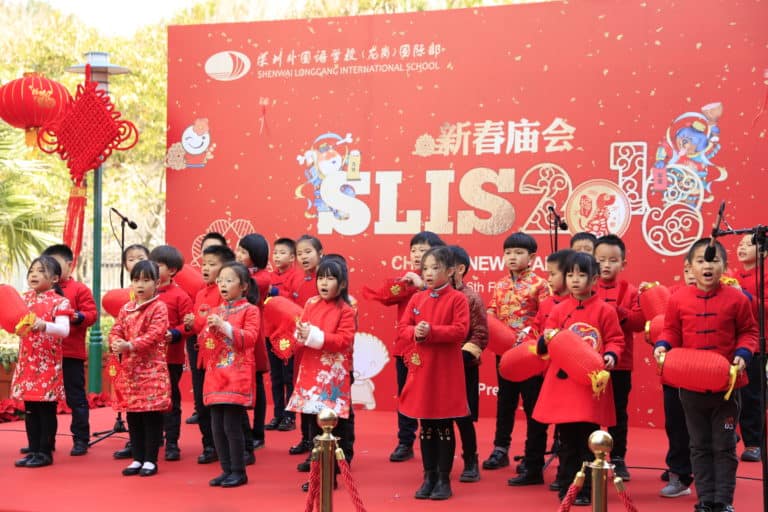
What inspired you to pursue a career in international education?
I’d wanted to do it from the beginning of my career as a teacher, but it took me a while to do. Once I had, my reflection on it was, “Why did I wait so long?”, Because I enjoyed it so much. I did some years in education in the U.K., and then I took time away and did some travelling. It was like the gap year that I never did at university. Part of the excuse for doing it was to visit colleagues and friends who’d left the U.K. and gone to different corners of the world. After that exciting trip, I felt that, yes, I now want to work internationally.
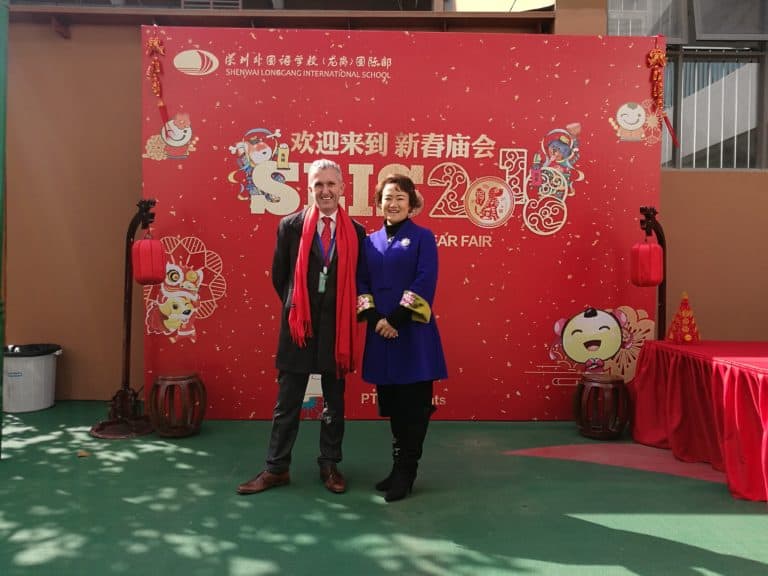
You’ve worked all over the world – Indonesia, Oman, Saudi Arabia, Dubai. Tell us about your current position in China and the school.
The opportunity came up to help found an international school in China. I’m currently the Founding Principal of Shenwai Longgang International School, which is in Shenzhen. We now have 31 students on the roll, and we are going to grow to 1000 students. We’re grade one to three only at the moment, and a candidate school for the PYP. We plan to develop through to the MYP and then to the DP. I think the challenge is how we control that growth in a manageable way as the school goes forward, but I’ve got no doubt that it’s going to be successful.
Shenwai Longgang International School is a school for Chinese students, but the technicalities are that the Chinese students have to hold a foreign passport, so they are Chinese, but a lot of the children have been born in Hong Kong or Macau. Now, all our students currently are Chinese, but that’s not a school rule, and we certainly would welcome expat students. The school is government-backed the first two years to make sure it gets off the ground and succeeds. We’re using a temporary campus for the first two years, and they’re building an inspiring state-of-the-art campus which will open in 2019.
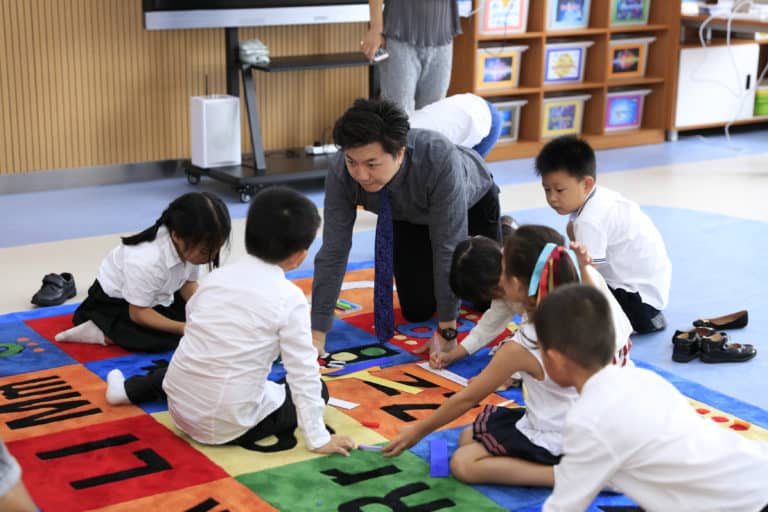
What is a Chinese, or foreign Chinese, parent hoping that their child will get from your school as opposed to a local school?
What they trust about it is that its part of the Shenzhen Foreign Languages School, which is a very long-term established group in Shenzhen. It’s been there for a long time and has a very good name. There is also a sister school, Shen Wai International School (SWIS), which set up five years ago in another area of Shenzhen. Like many places in Asia, Shenzhen people are very conscious of where they live and work because they want to avoid too much tricky travelling. Huawei has a large factory nearby, and the government is very keen to keep it based in Shenzhen, which is part of the reason for establishing the school. We hope to forge strong links with the Huawei families and the local community as we continue to grow the school.
Regarding the education offered, parents are buying into what they see as a trusted brand as well as the opportunities that come with an international education for their children. Parents are still learning about the IB, so a large part of my job is educating them about what the IB means, and what those implications will be for their children.
Culture Shift
The inevitable questions arise, such as “Why not textbooks?”, and “Where do you get the curriculum from?”, And “Why do you teach in this way?”. There’s a lot of work that’s done on that, but the parents see it as the future and an excellent opportunity for their children. Because of my background and experience in these types of programmes in Oman and Saudi Arabia, I can draw on those shared experiences to build their trust. We’re quite selective at the beginning regarding our families and regarding our students. We’re making sure that when we interview the parents, as well as the students, that they understand what the IB is about; and that this path won’t allow them to go down a traditional Chinese education route anymore.
As such, we are teaching in English. We offer Chinese as our second language, but the rest of the curriculum is taught in English. Our students are developing learners of English. They’ve made tremendous progress already in the few months that we’ve been open, but we still facilitate their learning by talking to them in Chinese. Each expatriate homeroom teacher works with a Chinese co-teacher who assists them in the classroom. We’re quite overstaffed at the moment, but that’s a deliberate thing regarding how we wanted to do the start-up.
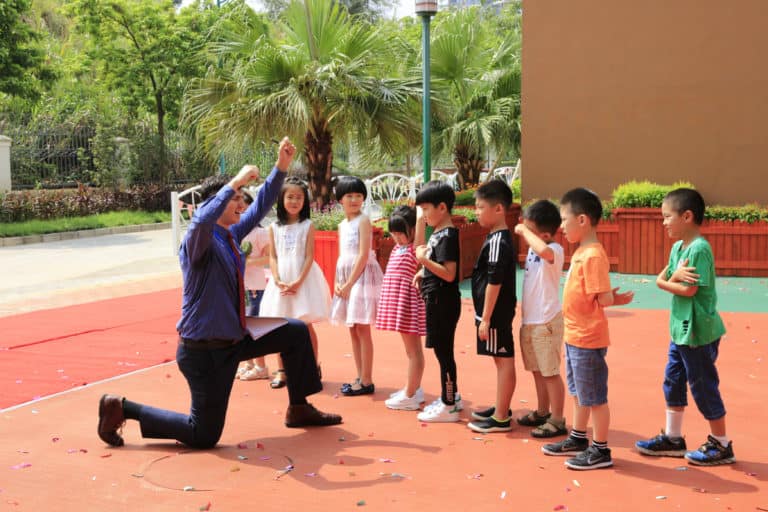
What are the values you’re looking to develop in students that you hope will become characteristics of future Shenwai Longgang International School graduates?
It will be a long time before we have graduates, but it’s a pertinent question because it’s something that we regularly discuss. We try to encourage the families to think about these ideas, what it means for them in the long term, and what will be the benefits for their children.
I think a lot of the values that we’re looking for in students are the same that I would set with the graduating students that I had at Greenfield Community School in Dubai. I’m looking to build their IB values, regarding the IB learner profile: for them to be open-minded, to be critical thinkers, to be balanced. I’m looking to build an international outlook with the students, and in working with host nation students, to develop the balance between that and valuing their own traditional culture. There’s also a balance needed in language, so they don’t reject native Chinese at the same time that they’re developing their English. We want them to develop global awareness.
Becoming an Active Learner
We also want them to develop into being active learners, non-judgmental, and to think of the process of learning as a lifelong occupation. One thing I’m conscious of in all the schools where I’ve worked is that the students are relatively privileged, so I see developing old-fashioned values like being polite and humble as very important. We talk a lot about how they greet people, how they treat guests or visitors who come into the school, and how they interact with each other. I see all of those things as essential characteristics.,
The process of education is not just about the exams that they’ve got to pass, but all those other add-on things that they gain from their years of school, such as involvement in activities like the model United Nations or school sports competitions. Those kinds of experiential learning and the relationships they build are what I believe they will remember most about their time in school. I see having a happy school as being a top priority. If all the students feel safe within the school, feel their views are respected, and enjoy coming to school, then I think that confidence and enjoyment will automatically lead to success on the academic side of things.
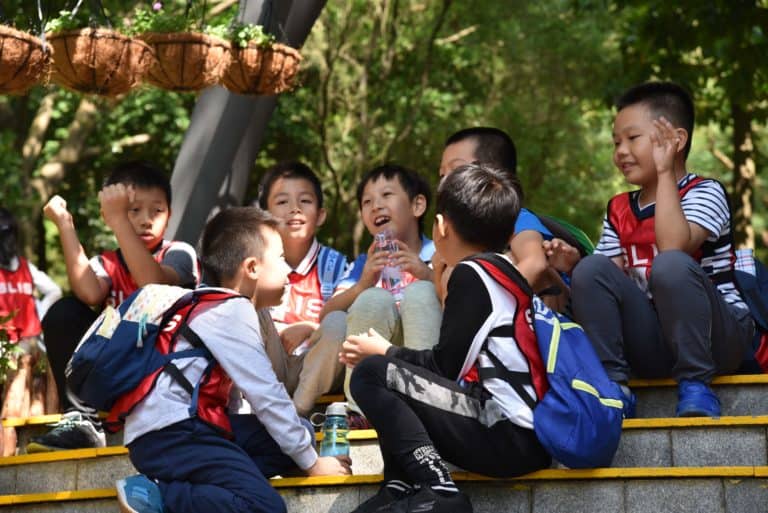
Do you believe that getting the students to do their best academically is about encouraging a well-rounded approach?
I believe, and there’s a lot of research to support this, that a holistic education – having balance, and a good blend of sports and arts – will result in the students doing better academically. For instance, if you play the piano, you can develop sequencing skills and so on that help you be better at math. I try and make those links between the learning outside of the classroom and the academic studies for the students and the parents to understand. In a recent workshop, I did that by making a point about how famous people had a lot of unknown skills, hobbies, and interests that perhaps they weren’t aware of, but helped them to be successful in the field in which they’re renowned.
Academics are still very, very important in China, and parents will talk about this a lot. They generally have questions about academics with the younger students – how their math is developing, how the language is developing, the sciences and so on. When you bring in this holistic idea, they have questions about how it works, and you have to talk to them about how you’re teaching through an integrated unit of inquiry, and some of it’s integrated into groups, and some of it’s standalone. It’s an ongoing process.
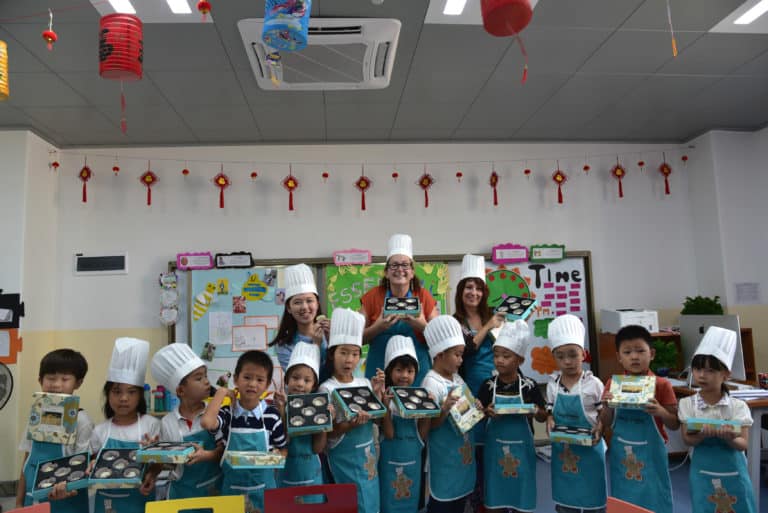
What is Shenwai Longgang International School offering regarding extracurricular activities?
We’ve just started with all that. The school is very ambitious, and the parents have kind of an insatiable appetite for anything that you can sort of offer. We’ve just run our first semester and started with sports, languages, art subjects, music and art, and dance. It’s as comprehensive and diverse as we could offer with our existing small school and a small staff.
We’re looking to develop some kind of STEM learning via technology development, robotics, and so on. Those kinds of things are prevalent in this part of the world, so we’ve been looking at working both with our existing staff and with outside agencies to offer some off-campus extracurricular classes. We’re looking to see whether we can extend it to a five-day programme.
We’re hoping to offer a model U.N. programme soon. Developing a leadership programme for the students is something that we intend to do this year. The changes in the PYP very much align with my thoughts on having the younger students developing their leadership skills now, as opposed to waiting until they get into secondary. We’re also looking into outbound opportunities like the Duke of Edinburgh award programme, and also what camps or what residences we might be able to start running.
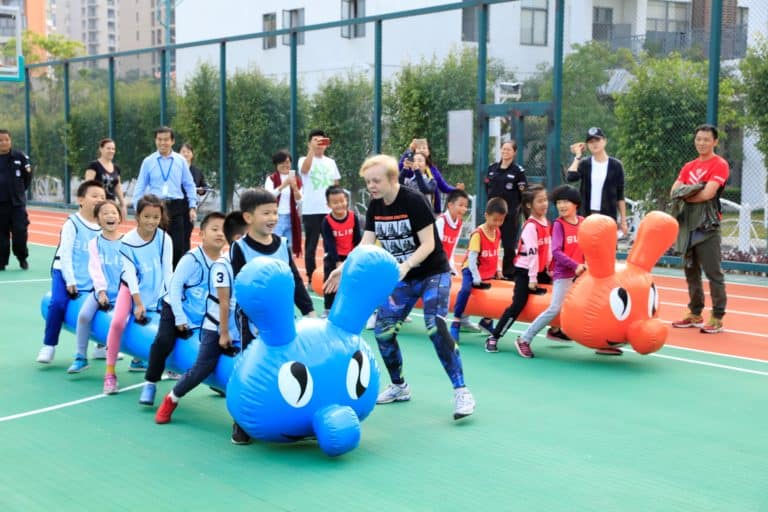
How are you helping students settle in, especially if they don’t speak any English – or are the children all speaking English before they come to Shenwai Longgang International School?
We are indeed willing to support and develop their language skills. Shenwai Longgang International School expects students to be able to speak at least a little bit of English when they join our school, but of course, there are some that arrive at our school with weak English-speaking ability. We can give them a very high level of attention right at the beginning since we’ve got small classes with a lot of staff supporting them. We’ve seen our current students already flourishing in their English development.
We’ve stocked up a good library, and we’re bringing a librarian in next semester to help increase development of the children’s language skills. We’re using books borrowed from the library to do a lot of levelled reading instruction online. We try to make a focus on home learning and encouraging them to do a lot of reading. We use an app called Seesaw for communicating with the parents. They can check on the app and see little videos of the kids and examples of what they’ve been doing.
Do you have a buddy system to help new students get acclimated to the school?
In the schools I previously worked in where we had diverse nationalities of students, I’ve found the buddy system to be an excellent general practice. We look to buddy them up with somebody from their home nation, particularly where one of the students does not have an active command of English yet. The idea is to support them in class with another student to help them access the curriculum. Obviously, with our small numbers of students and large numbers of staff, the students get a lot of support in the beginning. We have got a few new students joining us in the second semester, so we’ll certainly be monitoring their progress.
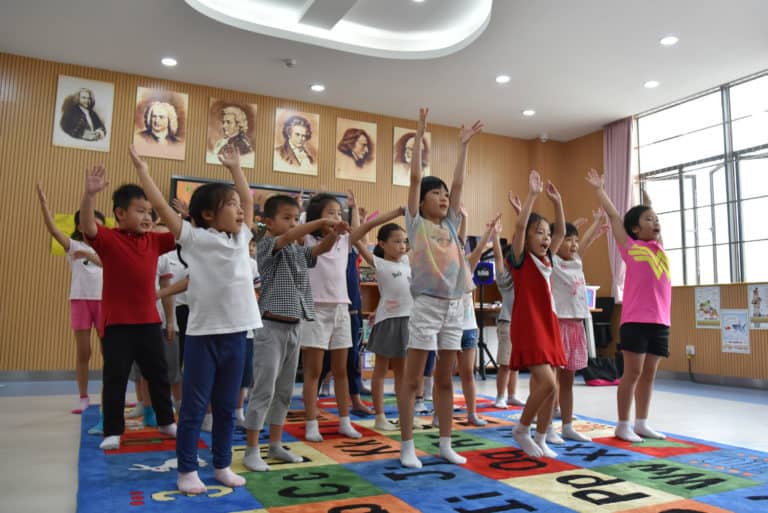
What’s the most exciting prospect for you about leading this school?
There are a few things. One is that I’m starting from the very beginning with a clean slate, so to speak, here on an opening day with a small first class; and that we have the backing and support to grow and manage it well. With such a small number of students, you can shape the philosophy and the style that you want the school to be. When you’re so small, you get to know every family, every person you’re working with, and there’s no excuse for not knowing the students’ names. When you’re starting with 1000 students, it’s not possible to know them all.
Shenwai Longgang International School is on a tiny, temporary site. It’s big enough for our needs, but while we’re working here, we’re close to finalising the designs for the permanent campus. We hope the construction will start around May with the aim that it will open the following year in August or September. All of that’s very exciting, and I think it’s also exciting that, having been through some different leadership positions in different schools, I get to draw on those experiences daily. For example, in Dubai, we had a well-being mindfulness room. We were one of the first schools to open those up.
Integrating Technology
That’s one thing that I’m looking to add into our school here. We’re looking to make some of the spaces quite flexible or open plan. This is just one way I can bring in the experiences and knowledge from other places I’ve been.
How we’re going to integrate technology into the school is very exciting. We’re hoping that Huawei is very involved in that with us. We visited their headquarters and had a look at some of the classroom technology they’ve developed. There were large digital panels, and it looked kind of like a research lab. I was thinking, “Well, actually some schools will look like this very soon.” There’s a lot we want to do regarding setting up something which is new in the school.
What are some of the challenges you see for education in the future?
I was thinking about a lot of the things that are happening recently – how in schools do you make sense of world events, how history has been created at the moment, fake news, Islamophobia. There are a lot of challenges within technology, and all the conveniences that we’re building now, such as the issues around mobile phones like sexting, the sharing of inappropriate images, and depression with teenagers. “Where do you go with phones in schools?”
“Where do you go with phones in schools?”
The students all need phones, and phones are their tools. Students work with phones, and they need to use them in the classroom. That’s an issue. Another one is they shouldn’t have them in school at all. Do we put them in a box when they come to school and give them back before hometime? Or where and how do you work phones into educating with technology? I’ve tended to go with iPads for the younger students and laptops for older students. In our school, we’ve got a one-to-one iPad scheme. So, our 26 students from grade one up each have their iPad.
Another challenge is in how we look at the kind of current world events that are happening. Intolerance is increasing around the world lately. Here you’re working with international students and looking to develop a real sense of tolerance. There’s been a lot of research regarding teenagers and depression. I think there’s a lot that needs to be looked at with that. It’s important in the future that students have a strong sense of well-being and self-confidence. This is what we hope to develop in our students here.

To find out more about Shenwai Longgang International School, please visit their website: https://www.slis.net.cn or contact Neil directly: ne**********@******et.cn
International School Parent Magazine is an Online and Print Magazine for Parents and Teachers. Our mission and message to readers is to highlight the excellent opportunities that an international school education offers and to help provide them with the information they need at critical points in a child’s education. For schools and educators, we are a platform helping communication with parents and others about news, updates, and expertise.
To submit an article, please contact our Content Team: co*****@***********************nt.com
